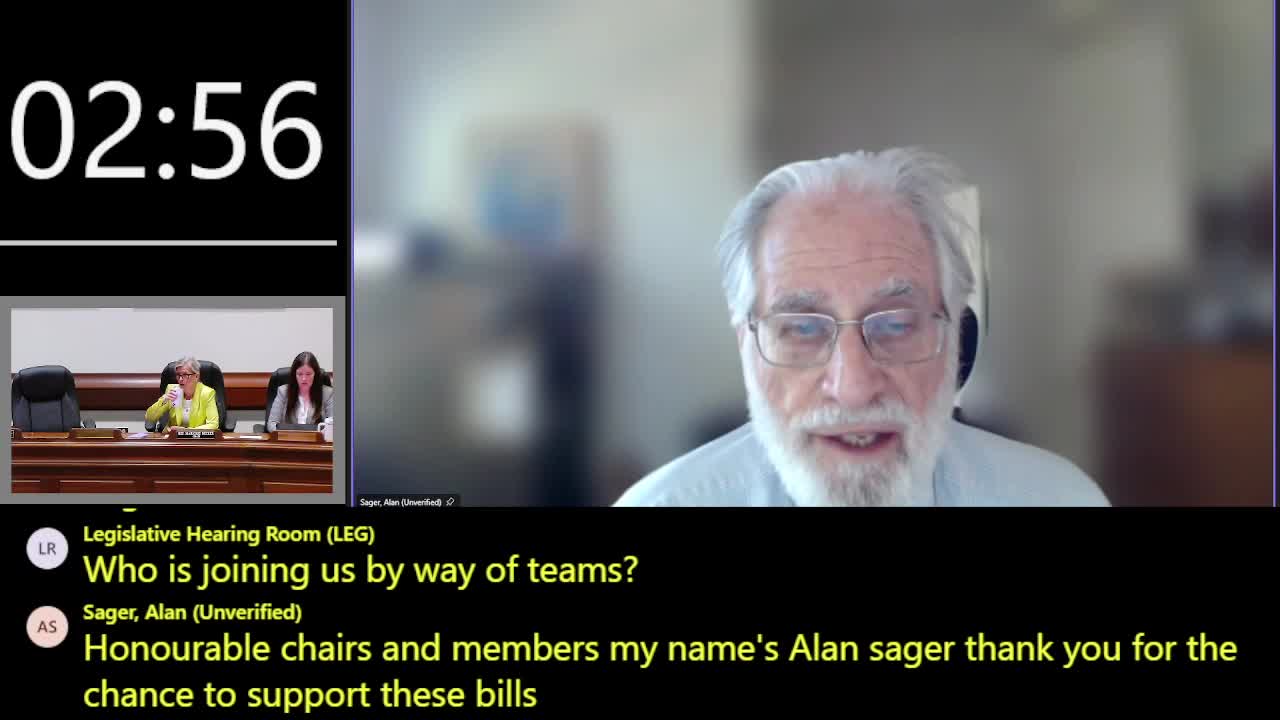Massachusetts Legislators Address Hospital Closures and Essential Services Accountability
September 29, 2025 | 2025 Legislature MA, Massachusetts
This article was created by AI summarizing key points discussed. AI makes mistakes, so for full details and context, please refer to the video of the full meeting. Please report any errors so we can fix them. Report an error »

The Joint Committee on Public Health convened on September 29, 2025, to address critical issues surrounding hospital closures and the preservation of essential health services in Massachusetts. The meeting featured testimonies from various stakeholders, including healthcare professionals and legislators, who expressed urgent concerns about the state of healthcare access in the Commonwealth.
The session began with a stark overview of the current healthcare landscape in Massachusetts. A representative highlighted the alarming decline in hospital numbers, noting that the state has reduced from 141 hospitals serving 5 million residents in 1960 to just 60 hospitals for a population of 7 million today. This reduction has led to significant service cuts and closures, often without adequate accountability or community input. The speaker emphasized the need for legislative measures to enhance accountability and ensure that essential services are maintained.
Several proposed bills were discussed, aimed at reforming the process for hospital closures. One key proposal would require hospitals to provide a year’s notice before closing or discontinuing services, allowing for community input and oversight. This change is seen as vital to preventing further loss of essential healthcare services, particularly in underserved areas. The representative also called for the establishment of a hospital mutual aid stabilization fund to support hospitals financially during challenging times.
Katie Murphy, president of the Massachusetts Nurses Association, echoed these sentiments, stressing the crisis created by recent hospital closures, including the bankruptcy of Steward Healthcare, which resulted in the loss of eight hospitals. Murphy advocated for legislative changes that would mandate community involvement in closure decisions and ensure that the Department of Public Health (DPH) has the authority to intervene in cases deemed detrimental to community health.
Senator Joan Lovely supported a bill requiring at least one registered nurse to serve as a voting member on the governing bodies of acute care hospitals. She argued that nurses bring invaluable insights into patient care and hospital management, which could improve healthcare delivery and workplace conditions.
Further testimonies from nurses highlighted the real-world impacts of hospital closures. Wanda Stokes recounted the devastating effects on her community following the closure of Brockton Hospital due to a fire, which left residents without immediate access to care and increased wait times at neighboring facilities. Similarly, Cindy Chaplin shared her experience with the closure of Providence Behavioral Health Hospital, which eliminated critical mental health services during a time of heightened need.
The meeting concluded with a consensus on the urgent need for legislative action to reform the hospital closure process and preserve access to essential health services. Stakeholders emphasized that without these changes, vulnerable populations would continue to suffer from inadequate healthcare access. The committee plans to review the proposed bills further, aiming to address the pressing healthcare challenges facing Massachusetts.
The session began with a stark overview of the current healthcare landscape in Massachusetts. A representative highlighted the alarming decline in hospital numbers, noting that the state has reduced from 141 hospitals serving 5 million residents in 1960 to just 60 hospitals for a population of 7 million today. This reduction has led to significant service cuts and closures, often without adequate accountability or community input. The speaker emphasized the need for legislative measures to enhance accountability and ensure that essential services are maintained.
Several proposed bills were discussed, aimed at reforming the process for hospital closures. One key proposal would require hospitals to provide a year’s notice before closing or discontinuing services, allowing for community input and oversight. This change is seen as vital to preventing further loss of essential healthcare services, particularly in underserved areas. The representative also called for the establishment of a hospital mutual aid stabilization fund to support hospitals financially during challenging times.
Katie Murphy, president of the Massachusetts Nurses Association, echoed these sentiments, stressing the crisis created by recent hospital closures, including the bankruptcy of Steward Healthcare, which resulted in the loss of eight hospitals. Murphy advocated for legislative changes that would mandate community involvement in closure decisions and ensure that the Department of Public Health (DPH) has the authority to intervene in cases deemed detrimental to community health.
Senator Joan Lovely supported a bill requiring at least one registered nurse to serve as a voting member on the governing bodies of acute care hospitals. She argued that nurses bring invaluable insights into patient care and hospital management, which could improve healthcare delivery and workplace conditions.
Further testimonies from nurses highlighted the real-world impacts of hospital closures. Wanda Stokes recounted the devastating effects on her community following the closure of Brockton Hospital due to a fire, which left residents without immediate access to care and increased wait times at neighboring facilities. Similarly, Cindy Chaplin shared her experience with the closure of Providence Behavioral Health Hospital, which eliminated critical mental health services during a time of heightened need.
The meeting concluded with a consensus on the urgent need for legislative action to reform the hospital closure process and preserve access to essential health services. Stakeholders emphasized that without these changes, vulnerable populations would continue to suffer from inadequate healthcare access. The committee plans to review the proposed bills further, aiming to address the pressing healthcare challenges facing Massachusetts.
View full meeting
This article is based on a recent meeting—watch the full video and explore the complete transcript for deeper insights into the discussion.
View full meeting
